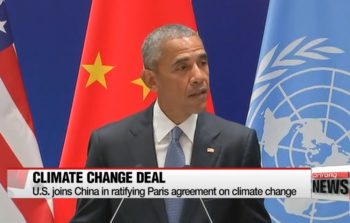
Gov. Jerry Brown (D) signed into law yesterday two new bills that require California to slash greenhouse-gas emissions to “40 percent below 1990 levels by 2030,” though it won’t offset warming in any measurable way. The new regulations, SB 32 and AB 197, would force emission cuts in all areas of work and recreation, from what you drive to what you eat.
They also give local air officials the ability to roll out new regulations while not spelling out what the rules would actually entail. One expert told the Sacramento Bee that if California stopped emitting all greenhouse gases tomorrow, it wouldn’t “change the global warming picture.”
Leading by example?
The new laws are about three times more zealous than 2006’s AB 32, which required bringing emissions to the same levels as 1990 by 2020. So far the state has become a test case that other governors are watching closely, just not following. Brown’s supporters say the new laws are an example of California being a political leader, a familiar refrain from President Obama after he ratified the Paris climate accord without the senate’s approval.
This is what the climate bill Jerry Brown signed means: When Gov. Jerry Brown signed Senate Bill 32 into law on… https://t.co/15blD8kalq
— Politics Sacramento (@POLSSacramento) September 8, 2016
And while California has some of the country’s highest payroll and state taxes, it also has the toughest fuel regulations in the country. Plus many of the targets listed in the new laws rely on technology not widely available, such as affordable vehicles with zero emissions.
















